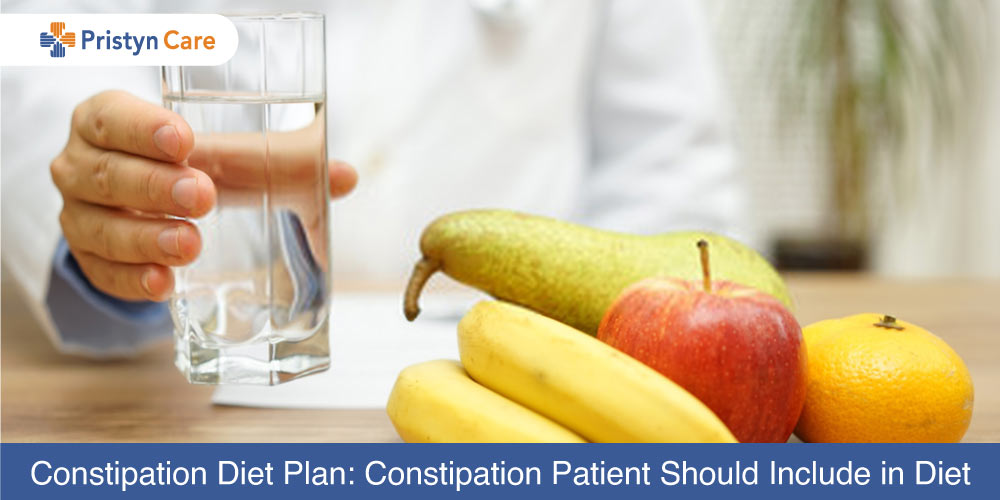
Some people need to follow a constipation diet plan which helps to relieve constipation naturally. Constipation occurs when the waste matter remains in the colon or more than 2-3 days. One may notice hard stool or straining during bowel movements. The reasons for constipation are
- Low fiber diet
- Repeatedly ignoring the urge to go to washroom
- Inadequate water intake
- Lack of exercise
Table of Contents
Tips to prevent constipation
- Drink plenty of water each day, as fiber absorbs a lot of water (around 70 percent of the weight of bowel motions is water).
- Consume high-fiber foods and snacks for any low-fiber choices you now eat. You can start your breakfast with cereal, your daily bread and any mid-meal snacks (swap biscuits for wholemeal crispbreads, fresh or dried fruit). Another is, try to add beans or lentils to every second-day meal.
- Regular exercise helps maintain bowel tone and internal muscles. A brisk walk each day is all you need.
- Even avoiding or skipping meals or dieting can induce constipation. Stick to eating more high-fiber foods and three balanced meals a day.
- A few tablespoons of unprocessed bran in your constipation diet plan are not sufficient. Though it’s a good start you need to eat more high-fiber foods to get the most benefit.
- Even prunes are very helpful in treating constipation. They are not only rich in fiber but also contain a substance that acts as a natural mild laxative. They make a handy food item.
- Do not spend time on the toilet seat if you do not have the urge. Rushing and straining increase the pressure in the blood vessels around your anus further causing piles.
- If high-fiber eating does not relieve your constipation, seek the advice of your doctor, especially during pregnancy when constipation is common. Do not self medicate laxatives yourself nor take them for long periods, as some can damage the nerves of the bowel.
How fiber plays a vital role during constipation
Fiber is more than just an aid against constipation. It has other health benefits. It can:
- help prevent diverticular disease (inflammation of the bowel), piles and irritable bowel syndrome
- change the type and number of bacteria that live naturally in the bowel and help remove potential cancer-causing agents of the colon/bowel.
- an increase transit time which means you don’t fully digest all the calories you consume so it helps with weight control.
- lower cholesterol – from soluble fibers from oats, barley, legumes, pectin and lentils.
- slow down the absorption of nutrients into the bloodstream so avoiding a spike in sugar and insulin output, helpful for anyone with type 2 diabetes.
- force you to slow down your rate of eating as high-fiber foods often require chewing and create a feeling of fullness.
Constipation during pregnancy
Constipation is a common problem during pregnancy due to changes in the hormone and less functioning of the body. Talk to your gynecologist to know the constipation diet plan to check for food allergies and contradictions with the medicines.
Take Away
Constipation treatment depends on the underlying cause. Few of the tips to prevent constipation include drinking enough fluids, eating more fiber, and exercise. If this is not effective, laxatives, stool softener, or lubricant may be recommended. Wake up early, do your breakfast and then move your bowels. Food can stimulate the urge to go to the washroom. But don’t avoid public bathrooms when you feel the urge. Delaying a bowel movement can make constipation worse.
In the end, if the above tips or constipation diet plan does not work, consult a doctor. There may be underlying associated diseases such as hypothyroidism, diabetes, Parkinson’s disease, celiac disease, non-celiac gluten sensitivity, colon cancer, diverticulitis, and inflammatory bowel disease. You can contact us or consult our experienced doctors online.
Also read: How Chronic constipation affects your Body
Also read: 10 Yoga Poses for Chronic constipation







